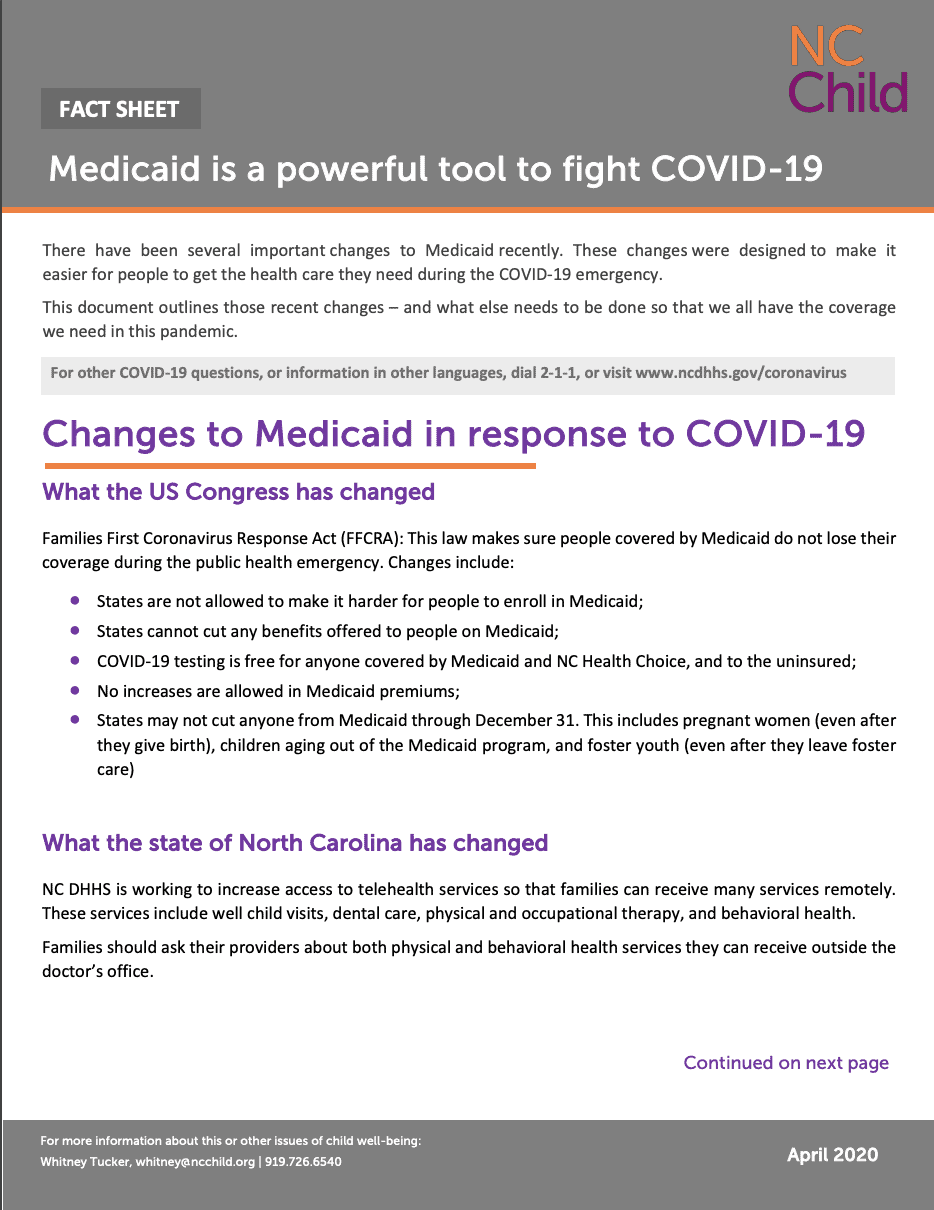
Fact Sheet: Medicaid changes under COVID-19
April 2020
What families and providers need to know about recent changes to Medicaid
NC Child produces publications that document trends in child well-being and the impact of public policy decisions on children and families.

What families and providers need to know about recent changes to Medicaid
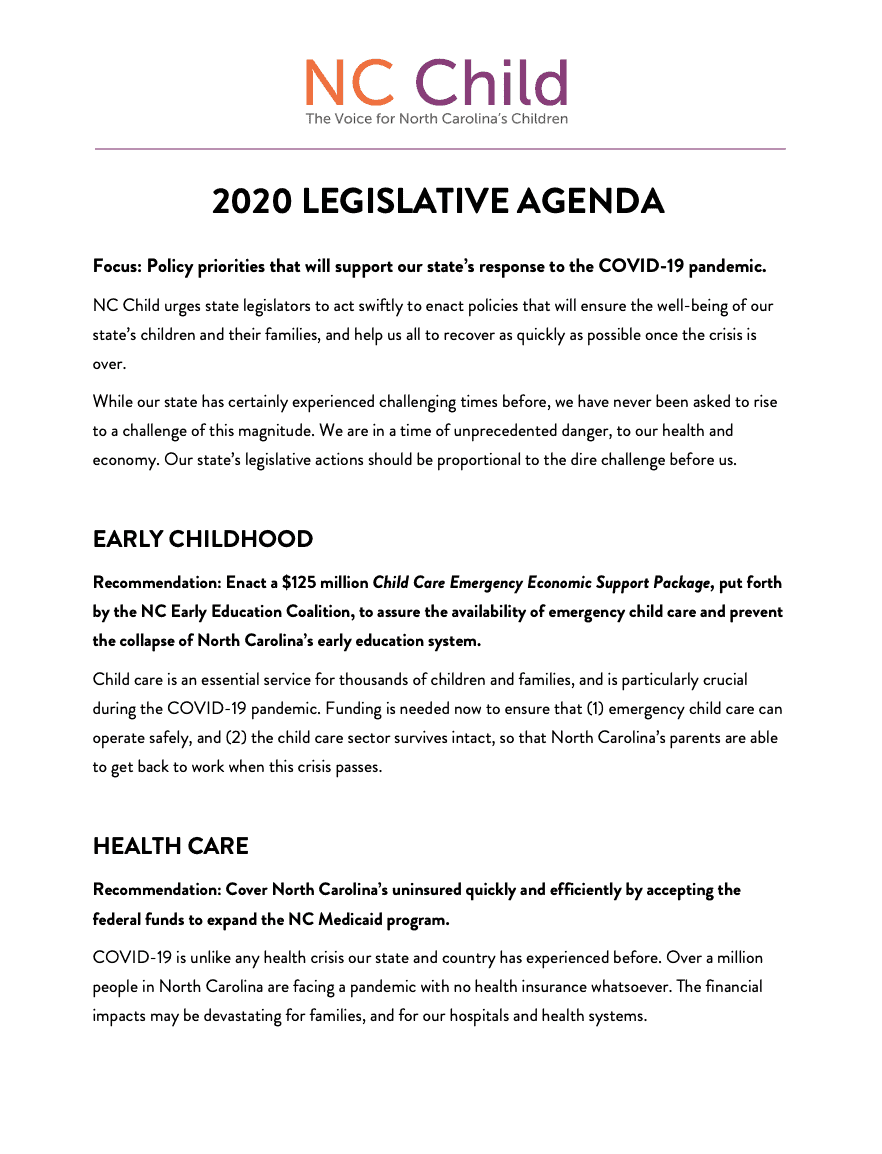
Learn about NC Child's priorities for the 2020 legislative session.
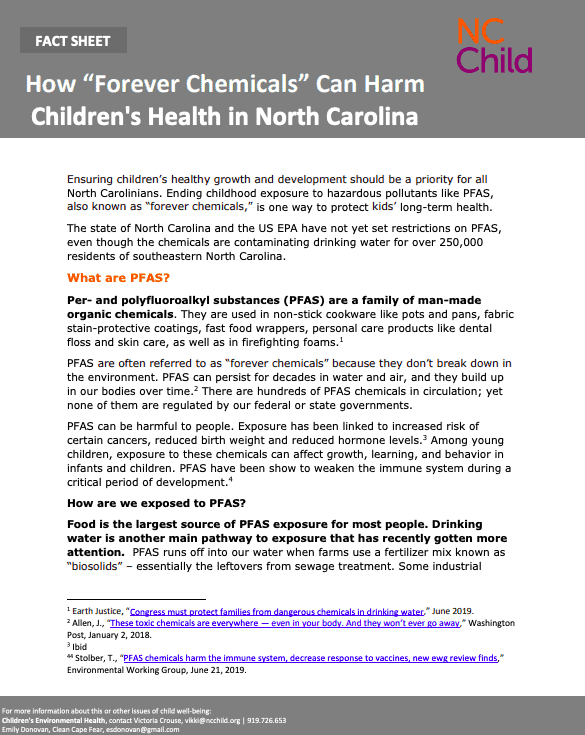
Ensuring children’s healthy growth and development should be a priority for all North Carolinians. Ending childhood exposure to hazardous pollutants like PFAS, also known as “forever chemicals,” is one way to protect kids’ long-term health.
The state of North Carolina and the US EPA have not yet set restrictions on PFAS, even though the chemicals are contaminating drinking water for over 250,000 residents of southeastern North Carolina.
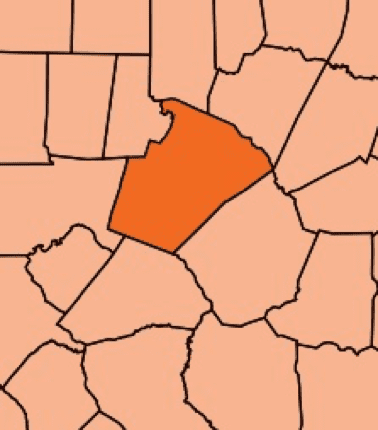
This fact sheet from NC Child explores which local communities within Wake County, North Carolina are most likely to be missed in the 2020 Census.
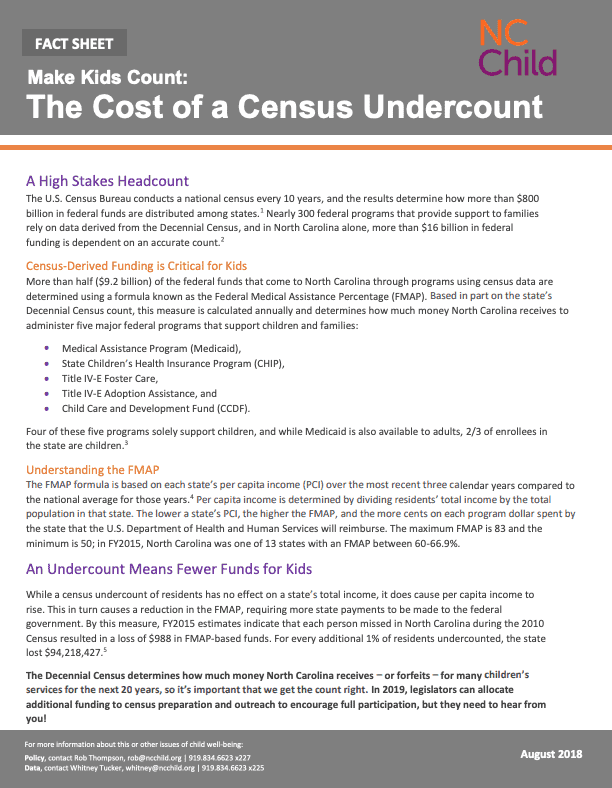
In North Carolina alone, more than $16 billion in annual federal funding is dependent on an accurate Census count.

This fact sheet from NC Child describes why more than 73,000 young children may be missed in North Carolina's 2020 Census.
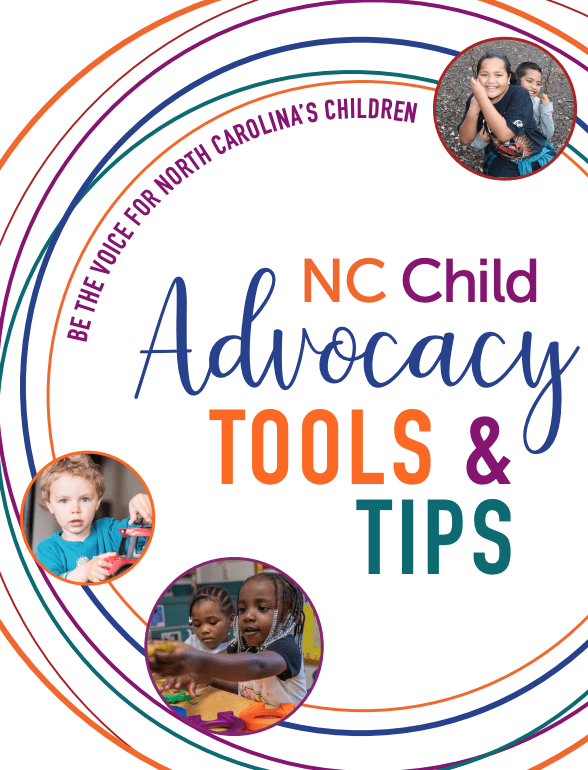
The NC Child Advocacy Toolkit is designed to support individuals and organizations in participating in the public policy-making process.

Big changes are coming to NC Medicaid and Health Choice (CHIP). Families will have a new world of health care decisions to navigate.
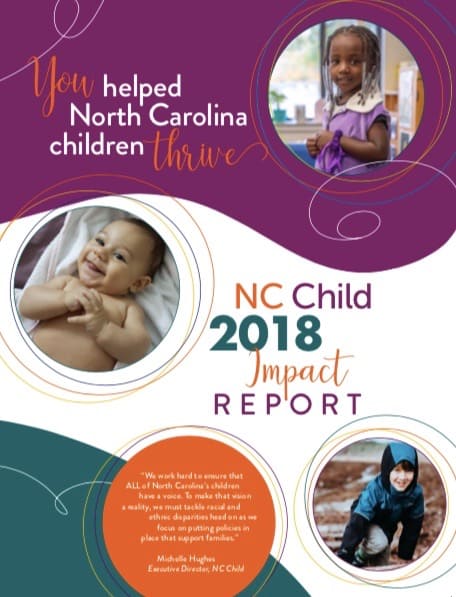
In 2018, you helped us transform data into action and policy change. You gave youth advocates a voice. And you supported our policy wins at the legislature. Together, we helped North Carolina children thrive!